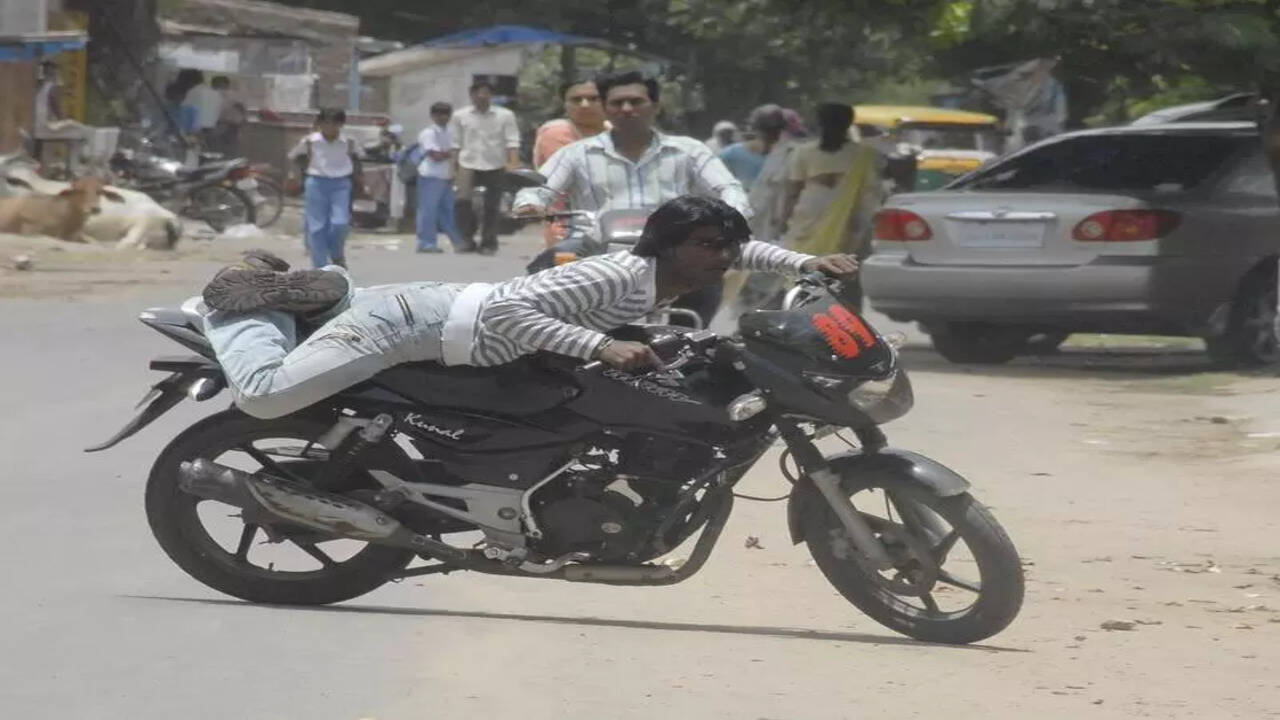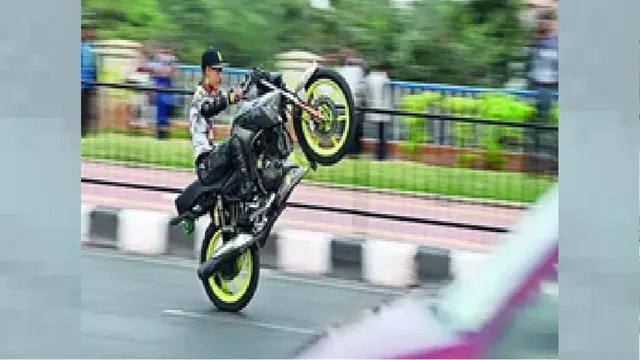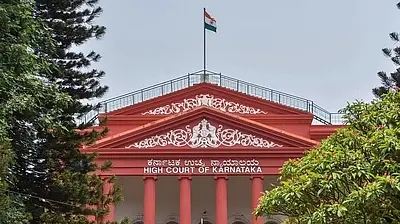Karnataka High Court’s Powerful Call for Stricter Wheelie Laws
In a landmark move that has ignited passionate debate across Karnataka and India, the Karnataka High Court has called for urgent legislative reforms to combat the “galloping trend” of wheelies-dangerous motorcycle stunts that are endangering lives on public roads. On May 14, 2025, Justice V Srishananda issued a powerful order urging the state government and lawmakers to introduce tougher, more specific laws targeting wheelies, after observing that current statutes are woefully inadequate to deter or punish offenders. The court’s intervention comes amid a sharp rise in reckless stunt riding incidents, fatal accidents, and public anxiety over road safety.
The Karnataka High Court’s strong stance has already begun to influence public discourse, with citizens and advocacy groups taking to social media to demand immediate action from lawmakers. Hashtags like #StopWheelies and #SafeRoadsKarnataka have trended regionally, reflecting a groundswell of support for stricter enforcement and legislative reform. Many parents and teachers have voiced their fears about the safety of young riders, urging educational institutions to incorporate road safety awareness into their curricula.
Police officials across Karnataka have welcomed the court’s recommendations, noting that current laws often force them to release offenders with minimal penalties. They argue that without the backing of stringent statutes, their hands are tied when dealing with habitual stunt riders who repeatedly endanger themselves and others. Several senior officers have called for the establishment of specialized traffic squads to monitor hotspots known for illegal stunts, particularly during weekends and public holidays.


Wheelie Menace: A Growing Threat to Public Safety
The High Court’s concern was triggered by a bail petition involving a 29-year-old accused, Arbaz Khan, who, along with two others, performed wheelies in Koppal district in October 2024. The group’s reckless actions led to a crash and a violent altercation with police, highlighting the grave risks such stunts pose not just to riders but also to law enforcement and the public at large. Justice Srishananda noted that wheelies, once confined to urban arterial roads, have now spread to rural areas, making the menace more pervasive and harder to control. The court described the act as “perilous” and “disturbing public order and tranquility,” emphasizing that the younger generation is dangerously misled into viewing wheelies as a mark of bravado.
Motorcycle clubs and riding groups, meanwhile, have found themselves at the center of the debate. While some responsible riding communities have condemned dangerous stunts and pledged to educate their members about safe practices, others have pushed back, arguing that not all group rides or motorcycle events should be stigmatized. This has sparked a nuanced conversation about the distinction between lawful recreational riding and reckless, illegal behavior.
Legal scholars have pointed out that the Karnataka High Court’s intervention could set a precedent for other states grappling with similar issues. Cities like Mumbai, Delhi, and Hyderabad have also reported a rise in wheelie-related accidents, and there is growing consensus that a pan-India approach may be necessary. Some experts have even suggested the creation of a national database of stunt-related offences to identify repeat offenders and track the effectiveness of new laws.
Legal Vacuum: Existing Laws Failing to Deter Offenders
The Karnataka High Court strongly criticized the current legal framework, stating that the Motor Vehicles Act, 1988, and the Indian Penal Code, 1860, only address reckless or negligent driving as bailable offences-insufficient for curbing the wheelie menace. The court observed that lawmakers in the past did not foresee the rise of such stunts, resulting in a “legislative vacuum” that hampers effective enforcement. Justice Srishananda said, “Suitable and stringent provisions should be incorporated by amending the IPC and Motor Vehicles Act to complement each other,” and called the situation an “alarming rise” that demands immediate legislative attention.
Insurance companies are closely monitoring developments, as wheelie-related accidents often result in high-value claims for medical expenses and vehicle damage. Some insurers have indicated that they may revise their policies to exclude coverage for injuries or damages sustained during illegal stunts, placing further pressure on riders to adhere to the law. This financial dimension adds another layer to the push for reform, as families affected by such incidents often face significant economic hardship.
The entertainment industry, especially filmmakers and social media influencers, has come under scrutiny for glamorizing wheelies and other risky stunts. The court’s remarks have reignited calls for stricter regulation of content that encourages dangerous behavior among youth. Several prominent influencers have responded by pledging to highlight the risks and consequences of stunt riding, while others have faced backlash for failing to take responsibility.


Public Outcry and Legal Experts Demand Harsher Penalties
The court’s order has been welcomed by legal experts and the public, who stress the urgent need for harsher penalties and clear definitions of stunt riding in Indian law. Senior advocates and prosecutors have pointed out that, unlike some US states where wheelies attract escalating fines, license suspensions, and even vehicle seizures, Indian laws lack teeth to deter repeat offenders. Experts argue that India must follow global best practices and impose severe consequences for dangerous stunts to restore public trust in road safety.
Road safety NGOs have seized the moment to advocate for comprehensive awareness campaigns. They argue that enforcement alone will not solve the problem and that a cultural shift is needed to make road safety a shared value. Proposals include school workshops, public service announcements, and partnerships with popular sports personalities to reach young audiences more effectively.
Urban planners and transport experts have also weighed in, suggesting that better road design and infrastructure could help reduce the temptation for stunts. Ideas such as designated safe zones for practicing motorcycle skills under supervision, improved lighting, and more visible police presence in high-risk areas have been put forward as complementary measures to legal reform.
Case Study: The Incident That Sparked Judicial Action
The case that prompted the High Court’s intervention involved not just reckless stunt riding but also subsequent violence. When police attempted to stop the accused trio, their motorcycle fell, and they allegedly abused and manhandled the officers, even throwing a policeman’s phone into a canal. The court noted that the accused was a habitual offender, and the incident reflected a broader trend of lawlessness and disregard for public safety. The bail plea was denied, with the court underscoring the need for exemplary action to send a strong message to potential offenders.
Victims’ families have shared heartbreaking stories in the media, describing the devastating consequences of wheelie-related crashes. Many have joined advocacy groups to campaign for change, hoping that stricter laws will prevent other families from experiencing similar tragedies. Their testimonies have added a deeply personal and emotional dimension to the public debate.
As the legislative process unfolds, all eyes are on the Karnataka government to see how swiftly and effectively it will act on the High Court’s recommendations. The coming months will be critical in determining whether the momentum generated by this passionate judicial intervention will translate into lasting improvements in road safety, not just in Karnataka but across India.

Alarming Statistics: The Rising Toll of Wheelie Stunts
Fatal accidents linked to wheelies and other motorcycle stunts have surged in recent years, shaking public confidence in road safety. Police and road safety agencies report that wheelie-related crashes often result in severe injuries or death, with innocent bystanders frequently caught in the chaos. The court’s order cited multiple incidents where reckless stunts caused not just harm to the riders but also endangered the lives of pedestrians and other motorists. The trend is particularly concerning among youth, who are drawn to social media-fueled daredevil acts without understanding the grave risks involved.
Legislative Path Forward: Amending the IPC and Motor Vehicles Act
The Karnataka High Court’s order is a clarion call for legislative reform. The court has recommended that lawmakers amend both the Indian Penal Code and the Motor Vehicles Act to introduce specific, non-bailable offences for wheelies and similar stunts. Legal experts suggest that the new provisions should include steep fines, mandatory license suspensions, and even vehicle impoundment for repeat offenders, mirroring laws in countries like the US. The court’s intervention is expected to trigger a legislative review at both the state and national levels, with public safety as the top priority.
Societal Impact: Changing Attitudes and Raising Awareness
Beyond legal reforms, the High Court’s passionate order has sparked a broader conversation about responsible riding and civic duty. Road safety advocates are calling for educational campaigns targeting youth, highlighting the life-threatening consequences of wheelies and other stunts. The court emphasized that the glamorization of such acts must be countered with facts and real-life stories of tragedy to shift public attitudes and prevent further loss of life.
Conclusion: A Turning Point for Road Safety in Karnataka
The Karnataka High Court’s urgent and emotional intervention marks a turning point in the fight against the wheelie menace. By demanding tougher laws, stricter enforcement, and societal change, the court has set the stage for a comprehensive crackdown on dangerous motorcycle stunts. As lawmakers, police, and the public rally behind the call for reform, Karnataka could soon become a model for other states grappling with similar challenges.
Follow: Law Justice and Human Rights Department | Karnataka
Also Read : Shocking Cuts: Microsoft’s 3% Workforce Reduction Impacts 6,000 Employees, Sparks Industry Alarm

